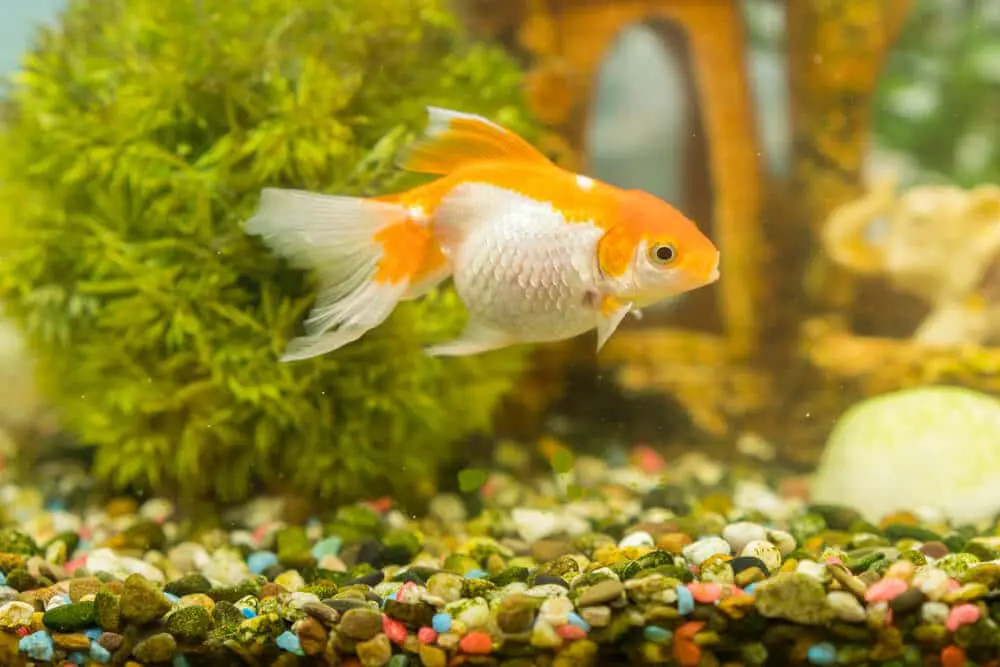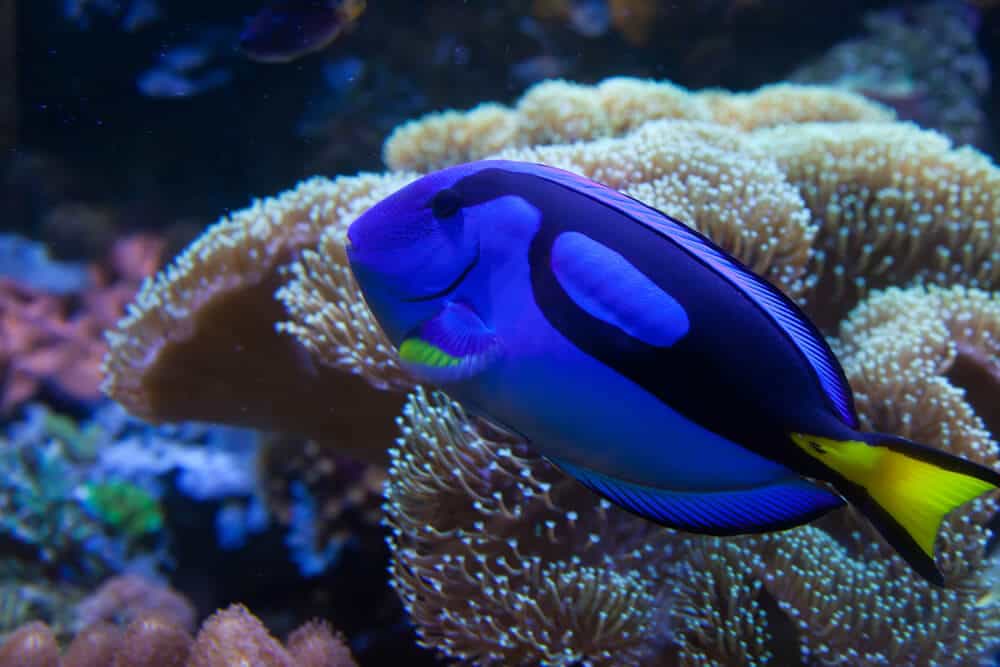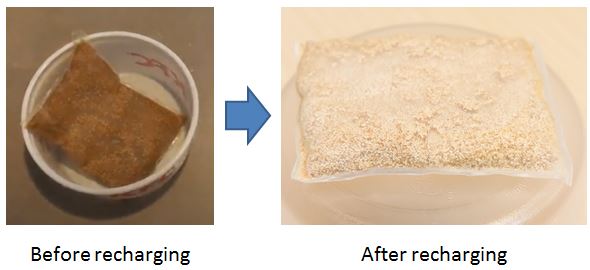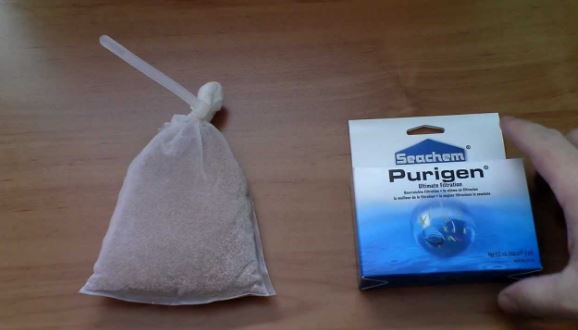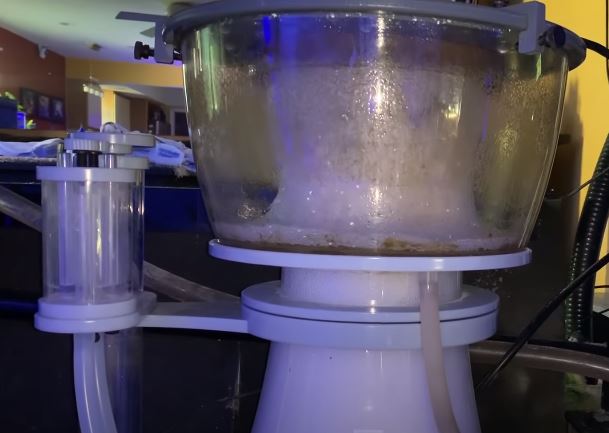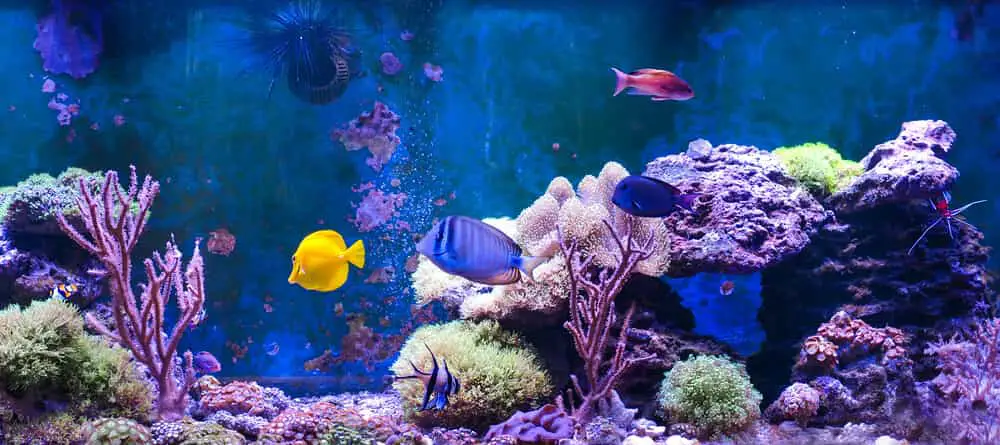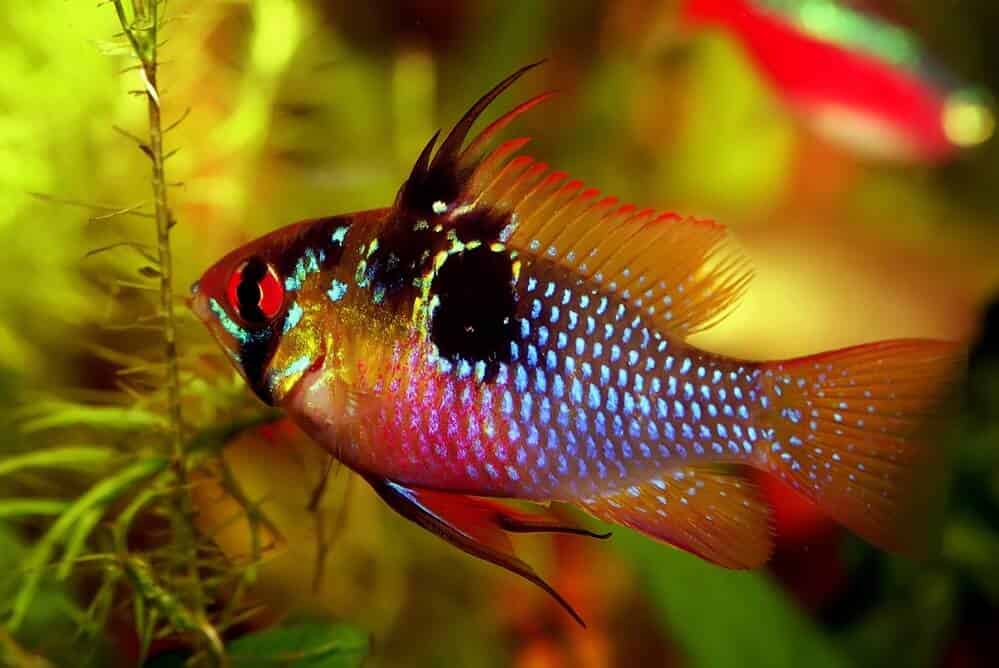
If you are unsure as to what an aquarium (or fish tank) water general hardness is, it is simpler when you pay more attention to this article.
It is of course the estimate of the dissolved magnesium, nitrate salts, sulfate and calcium in your aquarium / fish tank water.
So, it follows that aquarium water with an excessive amount of magnesium and calcium is generally hard while soft water definitely has little or no magnesium and calcium.
You may not know. General hardness constitutes one of the most important mechanisms in fish breeding.
This article sets the scene for reconciling with some aquarium water general hardness tips that you might not have heard about.
Contents
- 1. What distinguishes General Hardness (GH) from Carbonate Hardness (KH)?
- 2. What are the measurements of the GH and KH?
- 3. Why do you need some level of aquarium water general hardness?
- 4. What is the suitable range for the general hardness?
- 5. What is the ideal range for the carbonate hardness?
- 6. How do you test the general hardness?
- 7. What happens if your general hardness is out of suitable range?
- 8. What are the effects of plants in a hardness oriented aquarium?
- Final thoughts
1. What distinguishes General Hardness (GH) from Carbonate Hardness (KH)?
A lot of people perceive GH and KH as simply the same thing. We have all been there.
But now, I happen to think the opposite.
Maybe or maybe not, this is not based on my thinking alone.
This is just how it is. Both are different!
Definition
General hardness is the measure of dissolved magnesium and calcium in your aquarium.
But when you measure the dissolved carbonates and bicarbonates of your aquarium, you end up with carbonate hardness.
What’s more?
Treatment
I have heard someone say that KH is temporary.
Of course, you can consider that. This is because dissolved carbonates and bicarbonates only cause temporary hardness.
What am I talking about?
You can probably remove KH from your aquarium water with mere boiling. It is as simple as that.
But well, you shouldn’t treat GH in the same manner.
Once the hardness of your aquarium water is general, chances are that you can only remove the hardness with a chemical treatment.
pH level
If you have ever advanced your mind to the acidity of your aquarium water, you aren’t heading to the wrong way too!
Sure enough, KH has an acid-neutralizing capacity.
You may not know. Your aquarium water will always produce some acids which are in fact harmful to your fishes.
When that happens, the KH of your water saves the day.
It follows that the higher the KH of your aquarium water, the more acid it can resist.
One more thing.
The cleverest way to describe the KH of your aquarium water is to consider it to be a sieve that keeps the pH levels of your water in check.
Without a decent amount of KH in the water, chances are that the pH level of your water will fluctuate.
So next time someone tells you that the pH level of your fish tank water is changing, then KH is out of suitable range.
If your fishes are not growing healthy bones or gills, advance your mind to GH.
2. What are the measurements of the GH and KH?
You may not know. These two types of hardness will often come out as ppm (parts per million).
It means that any testing instruments you chose to use for them would typically reflect their measurements as ppm GH or ppm KH.
Well, you may also measure the hardness in degrees which are written as dGH or dKH. Some testing instruments may reflect both measuring formats.
So next time you see those formats on your aquarium testing kits or test strips, there is a definitely a huge connection to the GH and KH levels.
3. Why do you need some level of aquarium water general hardness?
Well, you might have probably wondered.
Is there really any reason why you need some level of GH for your aquarium water?
You can say that for sure.
As much as there are reasons why you probably need to soften or harden your water, GH cannot be left behind too.
The dissolved calcium and magnesium that pertains to GH aren’t structured only for the ‘made for fish harm only’ tagline.
So, your fishes most likely need the constituents of GH to stay as healthy as it could.
The sad truth is that your fishes may not survive when your aquarium water has NO general hardness.
This means that it is advisable that your aquarium must have at least some measure of GH for your fishes to survive.
Sounds good? But here’s the thing….
What’s more?
There is of course another reason and it is the simplest………
…….osmoregulation.
Simply put, osmoregulation is the active regulation of the water and salt inside the body of your fishes alongside the salt and water outside their body.
Want to know a secret? If the regulation backfires, it could expose your fishes to death or serious health issues.
4. What is the suitable range for the general hardness?
Well, there isn’t any fixed GH range for any aquarium.
Probably, the GH range depends on the kind of fishes you decide to stock in your tank. It may even depend on the type of tank you are going to use too.
So, the suitable range for the GH is often suggestive.
It then follows that the suitable range for the GH of your aquarium water can be best determined by your type of fishes and tank.
Depending on the situation, the rough guide below may set the scene of suitable range for your aquarium water.
Note that you DO NOT have to utilize this guide because it MAY NOT be the exact range that your fish really need.
| Tank | dGH |
| Pond | 4-12 dGH |
| Brackish tank | 12-20 dGH |
| Planted tank | 3-8 dGH |
| Discus tank | 3-8 dGH |
| African Cichlid tank | 12-20 dGH |
5. What is the ideal range for the carbonate hardness?
In case you don’t know, the suitable range for carbonate hardness level is at 4.5 – 6.5 or higher. This range is more suitable for freshwater fish tanks but for saltwater fish tanks, it may be higher.
6. How do you test the general hardness?
If you are planning to test the GH of your aquarium water, you must understand the fact that you cannot perceive the level of the GH by merely looking at it.
It would be in your best interest to figure it out with an aquarium testing kit.
Are you worried about the cost of aquarium testing kits?
The cost is not a big deal. It is cheap.
Of course, you do not need any technical know-how to use it.
Well, there is another testing instrument you can use. It is aquarium testing strip.
Test strips are merely an option. It is NOT as effective as test kits.
You can also test the GH of your aquarium water with reagents too. It operates a lot more like testing strip. All you need to do is to add a decent amount of the reagent to the water. There will definitely be a color change based on the water hardness. There you go.
What’s more?
When measuring the GH of your aquarium water with testing kits, you will most likely figure out the levels listed below:
| dH | ppm | gH |
| 0-8 dH | 0-140 ppm | Soft |
| 8-12 dH | 140-210 ppm | Medium |
| 12-30 dH | 210- 530 ppm | Hard |
7. What happens if your general hardness is out of suitable range?
Oh well, you have probably figured out that your fishes need some level of GH with the help of a testing kit but you aren’t sure about the exact range.
All of a sudden, you saw that your fishes are starting to develop serious health issues. Many of your fishes couldn’t breed successfully. As if that wasn’t enough, some of your new fishes ended up dying too.
You were in great shock and you felt like setting your aquarium testing kit ablaze. You felt your aquarium testing kits wasn’t accurate.
The sour truth is that your fishes are suffering from what is called an osmotic shock.
It is just like you or me finding it difficult to adapt to an unfamiliar environment.
You know what you always get from that?
You might fall sick or try to figure out a way of leaving that environment as fast as possible. Worse still, some human beings could die because they felt uncomfortable in a place. This is exactly how osmotic shock operates.
It is not a sharp killer. It can take few days before your fishes die from this.
Want to know a secret?
Your fishes may not have gone through all these hazardous circumstances if the GH of your aquarium water is of suitable range.
But then, you can always figure out a way for your new fishes to thrive in these circumstances. Drip acclimatization will perform the magic.
Want to know how it goes? It is very simple.
Try to discharge some water from your current tank into the original water container that your fish came in. Then add your harder water bit by bit. By doing so, your fish will adapt to the change in the water hardness slowly.
When measuring the general hardness of your water with an aquarium testing kit, you may figure out the degrees of hardness below:
| 0-17.1 mg/L of minerals | Soft water |
| 16.1-60 mg/L of minerals | Slightly hard water |
| 61- 120 mg/L of minerals | Moderately hard water |
| 121-180 mg/L of minerals | Hard water |
| More than 180 mg/L of minerals | Very hard water |
8. What are the effects of plants in a hardness oriented aquarium?
If you are the kind of person that likes plant species in your aquarium water, you must understand the fact that its effect on the GH and KH of your water may either be positive or negative.
The presence of plant species in your aquarium water may change the pH level of your water. When you have plants in your aquarium water, it absorbs carbon dioxide (CO2) and discharges them into the water.
When that happens, the pH level of your water will intensify.
Typically, you can treat your plant species and fishes in the same way when it comes to aquarium water. This is because both fish and plant can thrive in any aquarium water provided it is within their water parameters.
There are of course some plants that can barely thrive in hard water such as:
- Java fern
- Pygmy Chain sword
- Crypt Wendtii
Final thoughts
Well, you must have figured out a lot of helpful tips on the general hardness of aquarium water. Now you can easily understand what most fish owners wouldn’t understand.
Tending a fish is not all about figuring out the best location for your fish tank, purchasing fish, immersing them in water and watching them.
Fish care is more than that.
Before you consider anything about your fish, think about the pH level, KH and GH of your aquarium.
It is very important for your fish’s survival.
